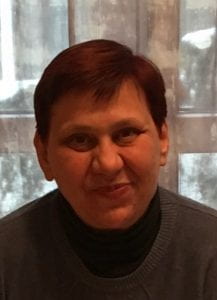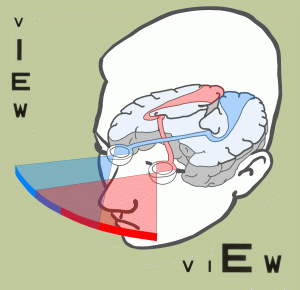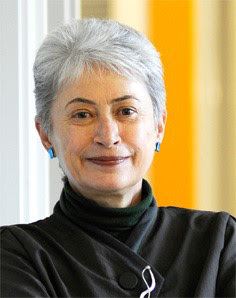Dr Maria Pipeva is Associate Professor of English Literature and Culture at the Department of English and American Studies, Sofia University “St. Kliment Ohridski”. She teaches courses on British Society and Culture, Literary Translation, Children’s Literature: Criticism and Translation, British and American Images of Childhood, Academic Research Methods. Her research interests lie in the fields of cultural and translation studies, children’s literature, modernist and contemporary English literature. She is the author of two full-length studies: E. M. Forster’s Novels: From the Monologic to the Dialogic (Sofia 2009) and Своето в чуждото, чуждото в своето: българските преводи на английска детска литература. (София 2014).
British and American Images of Childhood
Lectures: 30
ECTS credits: 3
Concepts of the child and the specific culture of childhood are an essential aspect of any society and culture. The course aims to introduce students to the distinctive British and American perspectives in this field, by tracing the evolution of key Anglo-American ideas of childhood as a historical, aesthetic and social construct from the Enlightenment to the present. The course objectives include:
- grounding students in British and American historical, aesthetic and cultural debates about the significance and nature of childhood;
- strengthening students’ skills of interpreting and responding critically to diverse cultural texts;
- engaging students in an exploration of children’s literature and culture as a vehicle of intercultural communication and globalization.
Classes will be devoted to analysis and discussion of a variety of mechanisms through which “the child” is constructed in a wide range of texts: fiction, poetry, films, media texts and advertisements. The topics include the emergence and development of children’s culture and literature; language, power and ideology in children’s literature; the child in the discourse of nationalism; gender identities in children’s fiction; the specificity of translating for children and the reception of Anglo-American children’s literature in Bulgaria. Assessment is based on: informed class participation (40%) and term paper (60%). To do the course, students should have a background in the humanities. The course is conducted in English.
Irish Language and Culture
Assistant Prof. Dr. Jonathan McCreedy
Lectures:30
ECTS credits: 3
This course aims to introduce students to the major areas of Irish culture, with an special scholarly emphasis on the country’s literary and linguistic history. Topics include St. Patrick (his life and legacy), Irish myth and the Irish Literary Revival (focusing on the drama of W.B Yeats and J.M Synge), Irish language poetry (1600-1900), the Irish Language in the 19th century (through Brian Friel’s “Translations”), modern-day Irish English, the Northern Ireland “Troubles”, Irish cuisine, music and dance.
Linguistic Anthropology
 Assoc. Prof. Dr. Aleksandra Bagasheva
Assoc. Prof. Dr. Aleksandra Bagasheva
Lectures: 30
ECTS credits: 3
The linguistic punctuation of reality
The aim of the course is to introduce students to the basic problems of studying the complex intertwining between culture, language, and the mind and their ultimate culturally informed embodiment. The course fosters in students skills for applying methodologies of qualitative research and ethnographic description. The topics of the course include the discussion of cultural linguistics, cognitive linguistics and their amalgamation in cognitive anthropology.
The course focuses on the problematization of the close relations between mode of
communication and prevalent cultural practices, the language patterns within a language community and their embodied, cognitively motivated nature in contrast with their symbolicity and indexicality. The approach is student-oriented and involves autonomous reading and discussion of papers by key researchers in the field. Students’ progress and achievements are assessed on the basis of individual field research (submitted as a term paper, with the major findings disseminated via an oral presentation). Students who take the course should have a fairly advanced knowledge of basic linguistics and be efficient writers of academic texts. The course is conducted in English.
Aleksandra Bagasheva
 Alexandra Bagasheva holds a PhD in Linguistics (Cognitive Semantics, 2004) and is currently an associate professor at the Department of English and American Studies of Sofia University “St. Kliment Ohridski”. She teaches diverse linguistic disciplines, among which the MA courses Anthropological Linguistics, Origin and Evolution of Human Language and Cognitive Approaches to Literature and Culture.
Alexandra Bagasheva holds a PhD in Linguistics (Cognitive Semantics, 2004) and is currently an associate professor at the Department of English and American Studies of Sofia University “St. Kliment Ohridski”. She teaches diverse linguistic disciplines, among which the MA courses Anthropological Linguistics, Origin and Evolution of Human Language and Cognitive Approaches to Literature and Culture.
Her main interests are in the fields of cognitive linguistics, meta-linguistics, word-formation, compounding and lexical semantics.
She has published mainly in the fields of word-formation and phraseology, Cognitive Linguistics, and Cultural Linguistics. She has been co-editor of issues of the Italian Journal of Linguistics, Contrastive Linguistics, and The SKASE Journal of Theoretical Linguistics. She is a member of the International Cognitive Linguistics Association. She has organised scientific forums in Bulgaria and abroad and is a regular participant in conferences. She is a member of the editorial boards of Contrastive Linguistics and Yearbook of Sofia University “St. Kliment Ohridski” and a member of the advisory boards of Explorations in English Language and Linguistics (ExELL),The SKASE Journal of Theoretical Linguistics and Zeitschrift für Wortbildung / Journal of Word Formation.
She is a regular reviewer for international journals and conferences. Among her publications are the articles Compound verbs in English and Bulgarian and the relativity debate (Benjamins), The Semantics and Morphology of Identity Enhancement in the Lexicons of Bulgarian and English (Peter Lang), On [N1N2] constructions in Bulgarian (Cambridge Scholars Publishing), Contrastive word-formation and lexicography – compound verbs in English and Bulgarian (de Gruyter), Cultural Conceptualisations of mouth, lips, tongue, and teeth in Bulgarian and English. In Sharifian, Farzad (Ed.) Advances in Cultural Linguistics (Springer) and the monograph Reflections on compound verbs and compounding (Sofia University Publishing House).
Translingual Literature
Lectures: 30
ECTS credits: 3
In the current global world many writers live beyond the borders of their national cultures and write fiction in a language other than their native one. The course focuses on the translingual literary imagination of prominent contemporary writers who write novels and short stories in English such as Aleksandar Hemon, Eva Hoffman, Bharati Mukherjee, Arundhati Roy as well as some authors of Bulgarian descent such as Kapka Kassabova, Miroslav Penkov, and Krassi Zourkova. The class discussions focus on the connection between language and identity, language and emotions, the role of the second language as survival, as site of memory, as an instrument of creativity or a tool for re-inventing oneself.
We have the pleasure of inviting you to the following upcoming events:
“Top-down Multiculturalism versus Multiculturalism from Below”
 International conference “Visual Worlds: The Aesthetics and Politics of Affect”
International conference “Visual Worlds: The Aesthetics and Politics of Affect”Sneja Gunew (FRSC) B.A. (Melbourne), M.A. (Toronto), Ph.D. (Newcastle, NSW) has taught in England, Australia and Canada. She has published widely on multicultural, postcolonial and feminist critical theory and is Professor Emerita of English and Women’s and Gender Studies at the University of British Columbia, Canada. She was Director of the Centre for Research in Women’s and Gender Studies (2002-7) and North American editor of Feminist Theory (Sage) 2006-10. She was Associate Principal of the College for Interdisciplinary Studies, UBC, 2008-11.
She has edited and co-edited four anthologies of Australian women’s and multicultural writings: Feminist Knowledge: Critique and Construct and A Reader in Feminist Knowledge (Routledge 1990-91). In Australia, she compiled (with others) A Bibliography of Australian Multicultural Writers (the first such compilation in Australia) and co-edited Striking Chords: Multicultural Literary Interpretations (1992), the first collection of critical essay to deal with ethnic minority writings in the Australian context. She set up the first library collection of ethnic minority writings in Australia. Continuing her focus on cultural difference, Gunew edited (with Anna Yeatman) Feminism and the Politics of Difference(1993) and (with Fazal Rizvi) Arts for a Multicultural Australia: Issues and Strategies (1994).
Her books include Framing Marginality: Multicultural Literary Studies (1994) and Haunted Nations: The Colonial Dimensions of Multiculturalisms (Routledge 2004). Based in Canada since 1993, her current work is on comparative multiculturalisms and diasporic literatures and their intersections with national and global cultural formations. Her most recent book is titled: Post-Multicultural Writers as Neo-Cosmopolitan Mediators. http://faculty.arts.ubc.ca/sgunew/
Keynote speech (abstract)
Visual Affect: Distant and Proximate Empathy
The paper juxtaposes Luc Boltanski’s influential work on ‘distant suffering’ in relation to the media with Teju Cole’s column on photography in the NY Times Sunday Magazine. I will use these theorists to develop a notion of post-human affect in relation to the different photos of Alan Kurdi, a toddler whose body was washed up on the shores of Turkey in 2015 and became emblematic (for a time) of the suffering undergone by Syrian and other refugees. While empathy is undoubtedly immediately evoked by this visual text, how useful is it in terms of transmuting this empathy into political change? To what extent does this kind of empathy in fact engender a continuous hunger for comparable material in order to produce what Zizek terms ‘symbolic identification’ (Sublime Object of Ideology, 105)? And how do we get from this legacy of representation to what has been termed the post-human where, in Spivak’s terms, humans are planetary accidents rather than agents (An Aesthetic Education, 339)? To what degree, for example, do we need to take into account other taxonomies of affect informed by other languages and cultures as, for example, the Sanskrit aesthetic framework of rasa/bhava? (https://emotionsblog.history.qmul.ac.uk/2016/07/decolonising-theories-of-the-emotions/). The consequences are that we situate the affect (sensation before it becomes a named emotion) associated with humans in a spectrum that includes all forms of animate and inanimate suffering.
Kornelia Slavova
 Dr. Kornelia Slavova is Associate Professor of American literature and culture in the Department of English and American Studies, St. Kliment Ohridski University of Sofia, Bulgaria. She has taught courses in Cultural history of the US, popular culture, American drama, postmodern literature and culture as well as gender studies at Sofia University, SUNY at Albany (USA), UBC (Canada) and other universities. Her publications are in the field of American drama and literature, cultural translation and gender studies. Her most recent book is The Traumatic Re/Turn of History in Postmodern American Drama (Sofia University Press, 2010). She has edited and co-edited several books on gender theory and cultural studies including Gender/Genre (Sofia University Press, 2010) and Identities in Transition: Gender, Popular Culture and the Media in Bulgaria after 1989 (Polis, 2011). She has been awarded the Christo G. Danov National Prize in the humanities and the Paul Celan International Award. Since 2008, she has served as associate editor of The European Journal of Women’s Studies (SAGE).
Dr. Kornelia Slavova is Associate Professor of American literature and culture in the Department of English and American Studies, St. Kliment Ohridski University of Sofia, Bulgaria. She has taught courses in Cultural history of the US, popular culture, American drama, postmodern literature and culture as well as gender studies at Sofia University, SUNY at Albany (USA), UBC (Canada) and other universities. Her publications are in the field of American drama and literature, cultural translation and gender studies. Her most recent book is The Traumatic Re/Turn of History in Postmodern American Drama (Sofia University Press, 2010). She has edited and co-edited several books on gender theory and cultural studies including Gender/Genre (Sofia University Press, 2010) and Identities in Transition: Gender, Popular Culture and the Media in Bulgaria after 1989 (Polis, 2011). She has been awarded the Christo G. Danov National Prize in the humanities and the Paul Celan International Award. Since 2008, she has served as associate editor of The European Journal of Women’s Studies (SAGE).
Език и култура (на английски език)
Featured
Магистърска програма: ЕЗИК И КУЛТУРА (Английски език)
Срок на обучение: 3 семестъра
Форма на обучение: редовна
Ръководители на програмата: проф. д-р Корнелия Славова, проф. д-р Александра Багашева
Тел. 02 946 3094 (Катедра Англицистика и американистика)
e-mail: kornelias@abv.bg; abagasheva@gmail.com
Програмата предлага специализирана професионална подготовка по широк спектър от лингвистични и социокултурни дисциплини, свързани с общуването на английски език в съвременния свят. Тя е интердисциплинарна и цели да осигури знания и практически компетентности по език, междукултурна комуникация и англоезични култури и литератури, където англо-американският опит предлага водещи модели. Програмата развива у студентите критично мислене и аналитични умения за работа на ниво текст, както и визуални, графични, и културни практики, отговарящи на нуждите на съвременното общество – особено в сферата творческите и културните индустрии.
Програмата е гъвкава и се предлага на бакалаври от различни области на знанието: кандидати завършили „Английска филология” или други нефилологически направления, които желаят да повишат образователната си степен и да се специализират по лингвистика и англоезична култура и литература. За кандидатите с нефилологическа подготовка се предвиждат допълнителни курсове по езика и базови филологически знания и умения, които подготвят включването им в основния курс на обучение.
Принципът за гъвкавост на обучението позволява на студентите да избират лингвистични и културологични курсове, като спазват изискванията за броя кредити, които трябва да наберат от задължителните и избираемите дисциплини. Някои от курсовете се предлагат в е- формат, което дава допълнителни възможности на студентите да организират своя учебна програма.
Обучението е изцяло на английски език и е отворено към чуждестранни студенти.
Магистрантите могат да участват в програмата за студентски обмен ЕРАЗЪМ и да набавят част от необходимите кредити от университети в други страни.
Магистърска степен се получава след успешна защита на дипломна работа на английски език.
Дипломираните магистри от програмата могат да се реализират като:
преподаватели в общообразователни и специализирани средни училища, колежи и университети; специалисти и консултанти по лингвистика, чуждоезиково обучение и комуникации; специалисти по литературата, езика, културата и обществата на Великобритания и САЩ в сектора на културните и творчески индустрии (рекламни дейности, медии, културни институти и форуми, и др.); служители в държавната администрация с висока компетентност по английски език; експерти в европейски и международни културни и образователни институции; наши и чужди неправителствени организации; журналисти, работещи по проблемите на Великобритания и САЩ; сътрудници в наши и чуждестранни компании; издателска и библиотечна дейност.
Всички кандидати за програмата се явяват на интервю. Бакалаврите-нефилолози представят и мотивационно писмо на английски език (около 2 стр.) с мотивите си за избора на програмата и направленията от нея.
Програмата се предлага за кандидати с придобита образователно-квалификационна степен „бакалавър” по направление 2.1- Филология, наричани „Специалисти” , както и за бакалаври от други/ нефилологически направления, наричани „неспециалисти”.
Студентите – неспециалисти следва да наберат 15 кредита от задължителните курсове на Подготвителния модул.
2 кредита = 30 часа аудиторна заетост и 30 ч. извънаудиторна заетост + 1 кредит – самостоятелна работа
Студентите набират определен брой кредити от самостоятелна работа, напр. защита на курсова работа, автореферат, изработване на корпус, теренно изследване, портфолио, рецензиране на научен труд или художествена творба и т.н.
При завършване всеки студент трябва да е набрал следния брой кредити:
Неспециалисти: задължителни 45 кредита (от които 15 кредита от подготвителния модул); избираеми – 30 кредита; защита на магистърска теза – 15 кредита;
Специалисти : задължителни 30 кредита; избираеми – 45 кредита; защита на магистърска теза – 15 кредита.
Учебните занятия се провеждат в два дни от седмицата – петък и събота.
Zelma Catalan
Dr Zelma Catalan is Associate Professor of English Literature and Stylistics at the Department of English and American Studies, Sofia University “St. Kliment Ohridski.” She teaches courses on 19th and 20th – century English Literature, Literary Stylistics, Popular Fiction on Page and Screen, Stylistics and Translation, The Translator’s Profession. Her research interests lie in the fields of Victorian literature, narrative fiction and the study of style in literary and non-literary texts. Her publications cover works by Thackeray, Dickens, Trollope, Charlotte Bronte, Browning, as well as some more recent novelists. She is the author of a full-length study “The Politics of Irony in Thackeray’s Mature Fiction” (Sofia 2009). Dr Catalan is Co-Director of the MA Program in Translation at the Department of English and American Studies, Sofia University.
Department of English and American Studies, Sofia University “St. Kliment Ohridski.” She teaches courses on 19th and 20th – century English Literature, Literary Stylistics, Popular Fiction on Page and Screen, Stylistics and Translation, The Translator’s Profession. Her research interests lie in the fields of Victorian literature, narrative fiction and the study of style in literary and non-literary texts. Her publications cover works by Thackeray, Dickens, Trollope, Charlotte Bronte, Browning, as well as some more recent novelists. She is the author of a full-length study “The Politics of Irony in Thackeray’s Mature Fiction” (Sofia 2009). Dr Catalan is Co-Director of the MA Program in Translation at the Department of English and American Studies, Sofia University.
e-mail: zelmacat2 @ yahoo.com




